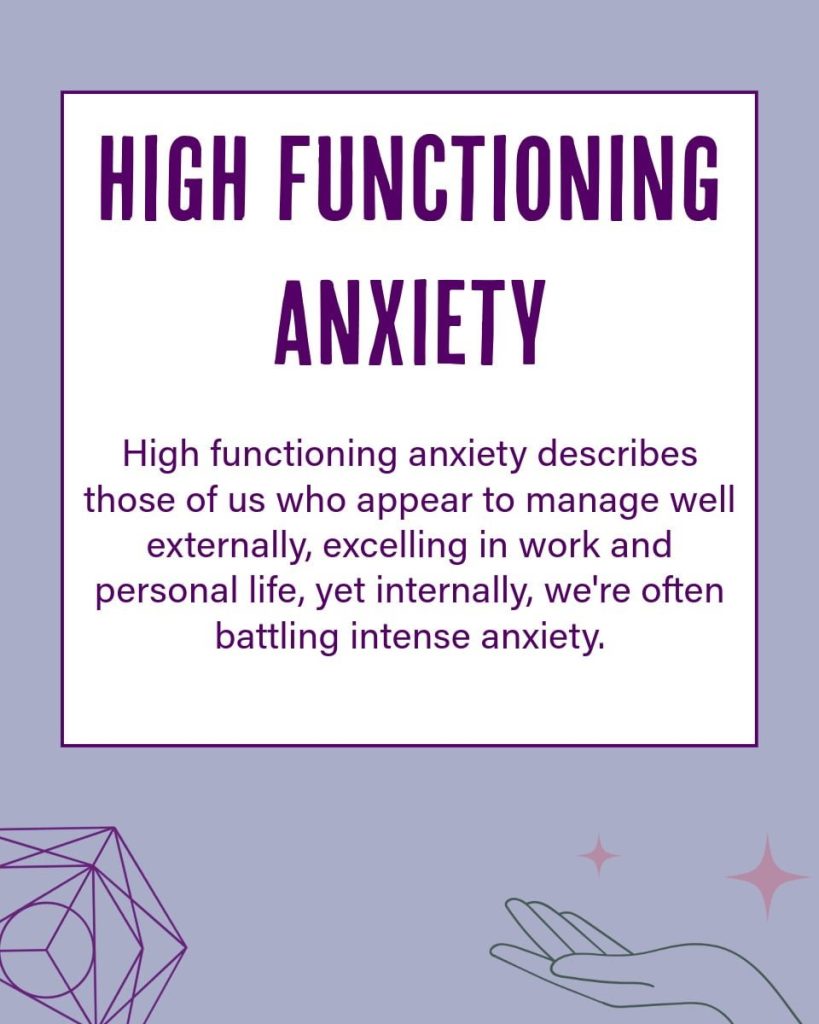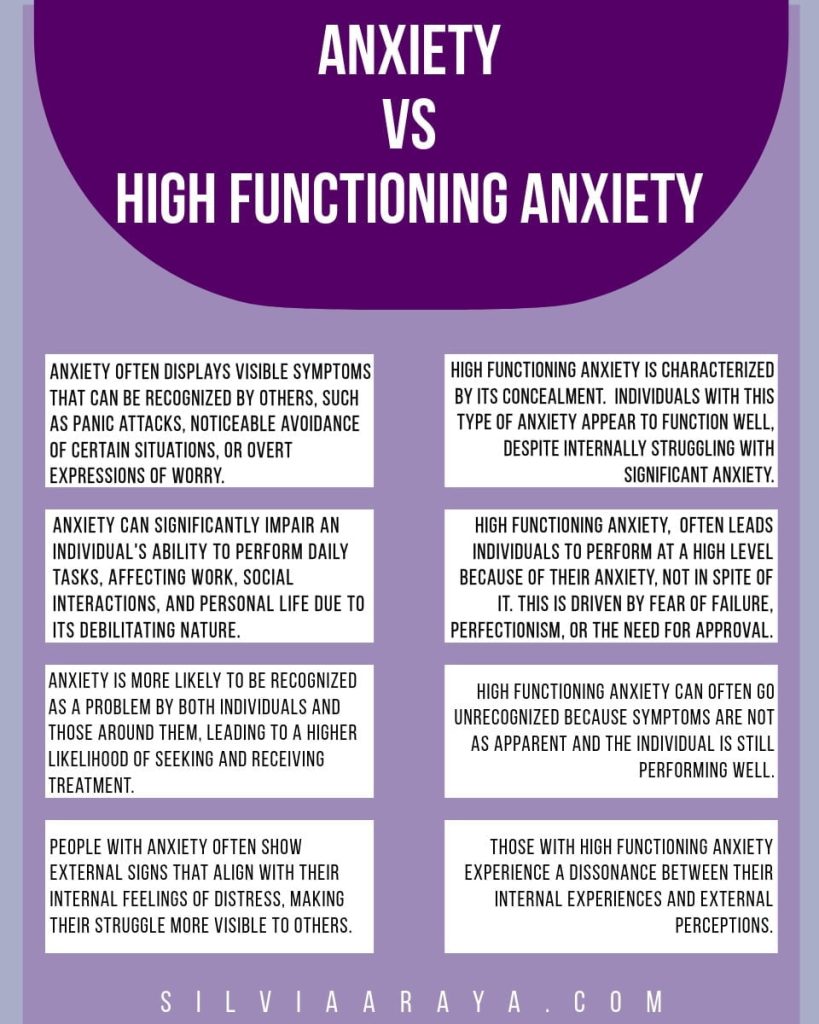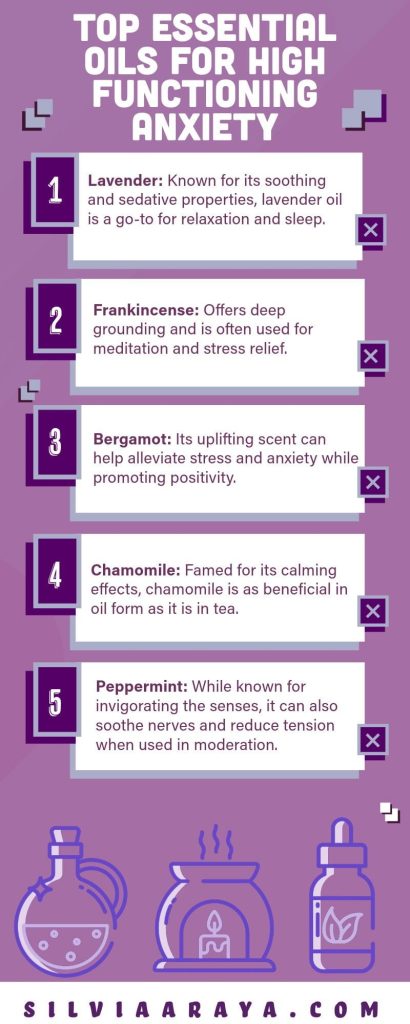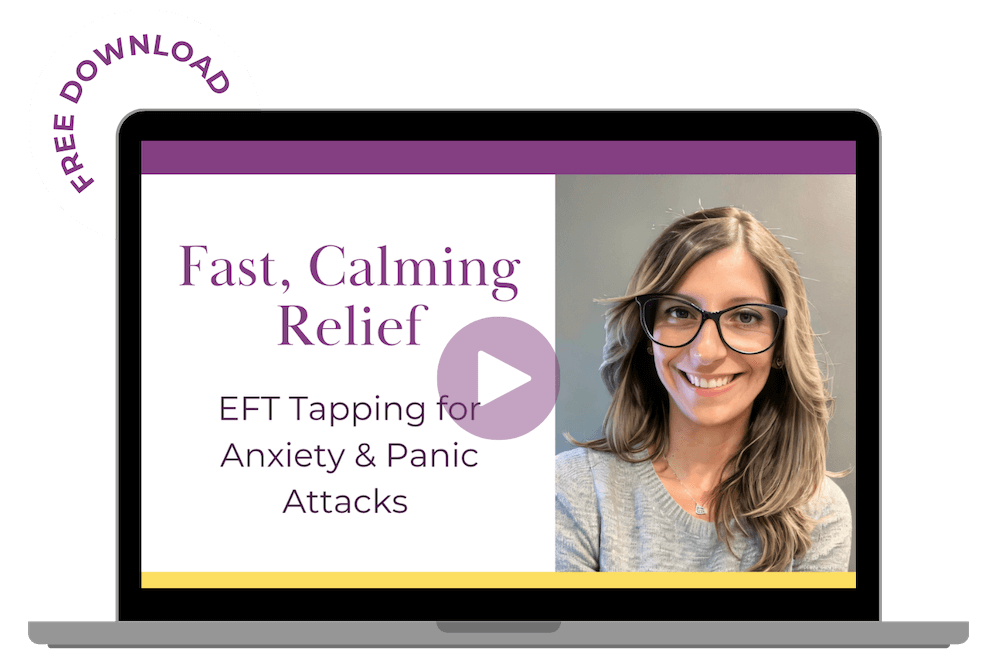What is high functioning anxiety?
High functioning anxiety describes those of us who appear to manage well externally, excelling in work and personal life, yet internally, we’re often battling intense anxiety. This form of anxiety can be particularly insidious because it’s hidden, masked by what seems like success and competence.

People with high functioning anxiety are often the ones you see as the most dependable, the overachievers, or the perfectionists. They’re skilled at navigating day-to-day life, yet inside, they might be struggling with persistent worry, fear of failure, or feelings of inadequacy.
This contrast between external success and internal turmoil can make high functioning anxiety challenging to recognize, both by the individuals experiencing it and by those around them.
Understanding High Functioning Anxiety
Understanding high functioning anxiety involves recognizing these inner struggles, acknowledging that someone can be highly capable and anxious at the same time. Crucially, it’s about realizing that this doesn’t make their experiences any less valid or their anxiety any less real.
High functioning anxiety, a hidden form of anxiety, often goes unnoticed. People with high functioning anxiety may look successful and driven on the outside but face constant worries, self-doubt, and strive for perfectionism internally.
This internal struggle can lead to exhaustion and negatively affect their work performance and personal relationships. Understanding and managing high functioning anxiety is crucial for mental health and well-being.
Anxiety vs. High Functioning Anxiety – What’s the difference?
Understanding the difference between anxiety and high functioning anxiety is key to recognizing and addressing the unique challenges individuals may face. Here’s a closer look at how these two forms differentiate:

Visibility vs. Concealment:
- Anxiety often displays visible symptoms that can be recognized by others, such as panic attacks, noticeable avoidance of certain situations, or overt expressions of worry.
- High Functioning Anxiety is characterized by its concealment. Individuals with this type of anxiety appear to function well in various aspects of their lives, despite internally struggling with significant anxiety.
Impact on Performance:
- Anxiety can significantly impair an individual’s ability to perform daily tasks, affecting work, social interactions, and personal life due to its debilitating nature.
- High Functioning Anxiety, on the other hand, often leads individuals to perform at a high level or even overachieve because of their anxiety, not in spite of it. This is driven by fear of failure, perfectionism, or the need for approval.
Recognition and Treatment:
- Anxiety is more likely to be recognized as a problem by both individuals and those around them, leading to a higher likelihood of seeking and receiving treatment.
- High Functioning Anxiety can often go unrecognized because symptoms are not as apparent and the individual is still performing well. This can delay treatment and support because individuals might not even realize they need help, or they might fear that seeking help could disrupt their ability to cope.
Internal Experience vs. External Perception:
- People with anxiety often show external signs that align with their internal feelings of distress, making their struggle more visible to others.
- Those with High Functioning Anxiety experience a dissonance between their internal experiences and external perceptions. Outside, they may be viewed as successful, competent, and calm, while internally, they battle intense, chronic anxiety, worry, and fear.
Recognizing these differences is crucial for understanding and supporting individuals who may be dealing with high functioning anxiety. Acknowledging the internal struggles that come with this form of anxiety, despite external appearances, can lead to more compassionate and effective approaches to mental health and well-being.
Statistics on High Functioning Anxiety
- Studies show that approximately 15% of the global population experiences high functioning anxiety.
- Women are more likely to be diagnosed with high functioning anxiety compared to men.
- People with high functioning anxiety are at a higher risk of burnout and chronic stress due to their constant need for perfection and fear of failure.
Daily Life
Navigating daily life with high functioning anxiety is akin to walking a tightrope, where every step is measured and fraught with the weight of expectations. On the surface, individuals might seem to glide through their days with grace and efficiency, ticking off tasks and accomplishments with apparent ease.
Yet, beneath that composed exterior lies a tumultuous sea of self-doubt, worry, and a relentless drive for perfection that rarely, if ever, quiets. This internal struggle is exhausting, though often invisible to the outside world, making the simplest of daily routines feel like insurmountable challenges.
The constant push and pull between wanting to excel and fearing they’ll fall short permeate every aspect of their lives, from work and social interactions to solitude and rest.
Career
In the realm of careers, individuals suffering from high functioning anxiety face unique challenges that can impact their professional trajectory. The competitive nature of the modern workplace can exacerbate their struggles, but understanding these dynamics is key to fostering a supportive environment. Here are some points to consider:
- Pursuit of Perfection: Those with high functioning anxiety often set exceedingly high standards for themselves, resulting in a constant pursuit of perfection. This can lead to exceptional achievements but also burnout and dissatisfaction when goals, often unattainably high, are not met.
- Overworking and Burnout: The fear of failing or being perceived as inadequate can drive individuals to overwork, sacrificing personal time and health. This relentless drive, while potentially leading to career success, also significantly increases the risk of burnout.
- Difficulty in Decision Making: The worry and self-doubt inherent to high functioning anxiety can hinder decision-making processes. Individuals may agonize over decisions, big or small, out of fear of making the wrong choice, which can slow career progression and lead to missed opportunities.
- Highly Valued Employees: On the flip side, individuals with high functioning anxiety are often highly valued for their dedication, attention to detail, and tendency to go above and beyond. Recognizing and supporting the mental health needs of these employees can enhance productivity and loyalty.
- Struggle with Delegation and Teamwork: Fear of perceived failure or relinquishing control can make delegation challenging for those with high functioning anxiety. This can impact team dynamics and limit opportunities for leadership roles where trust and delegation are key.
- Innovation Under Pressure: The ability to function at a high level, even under significant stress, can lead to innovative solutions and high-quality work. However, it’s important to balance this capability with the need for mental well-being to ensure sustainable success.
Understanding and addressing the needs of employees with high functioning anxiety can enhance their well-being and productivity, benefiting both the individuals and the organization as a whole. Supporting mental health in the workplace is not just compassionate; it’s a smart business practice that can drive success.
Parenting with High Functioning Anxiety
Parenting is a profoundly rewarding yet incredibly challenging experience under the best of circumstances. When you add high functioning anxiety into the mix, the complexities and demands can feel overwhelming. Individuals coping with this condition while raising children may face unique challenges, but understanding and strategies can make a significant difference. Here are essential points to consider for SEO optimization and to support parents in this situation:
Recognizing the Challenges:
- The constant worry and drive for perfection can make parenting decisions more stressful.
- Fear of not being a good enough parent can exacerbate anxiety.
Impact on Family Life:
- High expectations and worry can sometimes create a less spontaneous, more controlled home environment.
- The stress of trying to balance perfection in both professional and parenting roles can lead to burnout.
Positive Attributes:
- Parents with high functioning anxiety are often highly attuned to their children’s needs and excel in organization and planning.
- They can model coping skills and resilience to their children, showing how to manage and overcome challenges.
Seeking Balance:
- Finding a balance between personal expectations and the realities of parenting is crucial.
- Learning to accept and adapt to the unpredictable nature of parenting can reduce anxiety.
Parenting with high functioning anxiety is a complex, multifaceted experience that requires compassion, understanding, and strategic coping mechanisms. By recognizing the unique challenges and employing effective strategies, parents can manage their anxiety while nurturing a healthy, happy family environment.
Navigating Relationships with High Functioning Anxiety
Being in a relationship while managing high functioning anxiety presents its own set of challenges and opportunities for growth. The push and pull of wanting to connect deeply, yet fearing vulnerability, can make romantic relationships a complex dance for those battling this form of anxiety. Understanding these dynamics is crucial for both partners, fostering a supportive and loving bond. Here are essential points to consider for SEO optimization and to support individuals in this situation:
Communication Challenges:
- High functioning anxiety can lead to difficulties in communicating needs and feelings, for fear of being burdensome or misunderstood.
- Encouraging open and non-judgmental dialogue can help alleviate these concerns.
Overthinking and Worry:
- A tendency to overthink situations and anticipate problems can put strain on a relationship, leading to unnecessary worry.
- Practicing mindfulness and grounding techniques together can help manage these anxious thoughts.
Intimacy and Vulnerability:
- Fear of judgment or not being “enough” can hinder the development of intimacy and vulnerability, which are crucial for a deep connection.
- Building trust and reassurance over time helps in overcoming these barriers.
Dependence Vs. Independence:
- Balancing the desire for closeness with the need for individual space can be tricky. Anxiety may cause one to cling to their partner as a source of comfort, or conversely, to push them away to avoid perceived dependency.
- Discussing and respecting each other’s needs for independence and together time is key.
Support System:
- Having a partner who understands and supports one’s anxiety can be incredibly beneficial, yet it’s important for the person with anxiety to have additional support systems in place.
- Encourage seeking therapy or joining support groups to broaden coping strategies.
- Strengths in the Relationship:
- Individuals with high functioning anxiety often bring strengths such as empathy, attention to detail, and being highly considerate, enhancing the relationship.
- Acknowledging and appreciating these qualities can boost the relationship’s resilience.
Navigating a relationship with high functioning anxiety requires patience, understanding, and a commitment to mutual support. It’s about finding balance, celebrating strengths, and working through challenges together. With the right strategies and compassion, relationships can thrive, providing a source of stability and happiness.
Navigating Social Settings with High Functioning Anxiety
Social situations can often feel like a tightrope walk for individuals with high functioning anxiety. The blend of a desire to connect with others, against the backdrop of internal stress and worry, can make these settings particularly challenging. To support individuals facing these struggles, here are key points to consider for SEO optimization and practical advice:
Understanding Social Anxiety:
- Recognize that the fear of being judged or not fitting in is a common experience for those with high functioning anxiety.
- Acknowledging this fear is the first step toward managing it in social settings.
Preparation is Key:
- Planning ahead can help ease anxiety. This may include rehearsing conversations or having escape plans if the situation becomes overwhelming.
- Setting realistic expectations for social interactions can also reduce the pressure to perform perfectly.
Focus on Quality Over Quantity:
- Prioritizing deeper connections with a few people rather than trying to mingle with everyone can be less overwhelming.
- Engage in one-on-one conversations or smaller group settings where it feels safer to open up.
Mindfulness and Grounding Techniques:
- Practice mindful breathing or grounding exercises to stay present and reduce overwhelming feelings.
- These techniques can be a discrete way to manage anxiety in the moment without drawing attention.
Boundaries and Self-Care:
- It’s important to set boundaries around social engagements, knowing when to say no and allowing time for self-care.
- High functioning anxiety sufferers should honor their limits to avoid burnout.
Leveraging Strengths:
- Individuals with high functioning anxiety often have great observational skills and empathy, which can enhance social interactions.
- Focusing on these strengths can boost confidence and facilitate more meaningful connections.
Navigating social settings with high functioning anxiety is a delicate balance of self-awareness, preparation, and self-compassion. By employing these strategies, individuals can manage their anxiety while still engaging in and enjoying social interactions.
Treatment and Support for High Functioning Anxiety
Finding solace and strength in holistic treatments for high functioning anxiety can be a deeply personal and empowering journey. It’s about connecting to oneself on a profound level and exploring avenues of healing that embrace the whole person — body, mind, and spirit.
Mindfulness and Meditation:
By turning inward and practicing these methods, you can find a sense of calm amidst the chaos of daily worries and stresses. Here’s how you can incorporate mindfulness and meditation into your routine to combat high functioning anxiety.
Mindfulness Techniques:
- Start Your Day Mindfully: Begin with 5 minutes of morning meditation, focusing on your breath to set a calm tone for the day.
- Mindful Eating: Pay attention to the taste, texture, and aroma of your food, which can help ground you in the present moment.
- Mindful Walking: Take short, mindful walks, noting each step, the feel of the ground under your feet, and the sights around you.
Meditation Practices:
- Guided Meditation: Use apps or online videos for guided sessions that can help steer your focus away from anxiety.
- Breathing Techniques: Practice deep breathing exercises, such as the 4-7-8 technique, to help reduce stress and anxiety.
- Body Scan Meditation: Gradually focus on different parts of your body, noticing sensations and releasing tension.
Implementing mindfulness and meditation into your daily life doesn’t need to be time-consuming or difficult. Even a few minutes a day can make a significant difference in managing high functioning anxiety. Remember, the goal is to bring your attention back to the present and create a space of self-compassion and awareness.
Nutritional Therapy for High Functioning Anxiety
Understanding the intricate link between what we consume and how we feel mentally is key to addressing high functioning anxiety through diet.
Balanced Diet: Aim for a diet rich in vegetables, fruits, whole grains, lean proteins, and healthy fats to stabilize mood and energy.
- Why It Helps: This balance ensures a steady supply of essential nutrients and helps regulate blood sugar, which is critical in managing anxiety levels.
Hydration: Keeping well-hydrated is crucial for cognitive function and mood regulation.
- Simple Tip: Aim for 8-10 glasses of water daily, and remember that herbal teas count towards your intake.
Minimize Stimulants: Reducing caffeine and sugar can significantly lower anxiety symptoms.
- What to Do: Gradually decrease consumption to avoid withdrawal symptoms, and seek healthier alternatives like decaffeinated drinks or snacks with natural sugars.
Omega-3 Fatty Acids: These are vital for brain health and mood regulation.
- Sources: Incorporate foods like salmon, chia seeds, and walnuts, or consider an omega-3 supplement after consulting with a healthcare provider.
Magnesium-Rich Foods: Magnesium plays a role in calming the nervous system and improving sleep quality.
- Go-To Options: Include spinach, almonds, and whole grains in your meals.
Probiotic and Prebiotic Foods: Gut health is deeply connected to mental health, making these foods essential.
- How to Include Them: Eat more yogurt, kefir, whole grains, bananas, and garlic to support a healthy gut microbiome.
Implementing these nutritional therapy strategies requires patience and persistence but can lead to significant improvements in managing high functioning anxiety. Remember, it’s not about perfection but about making small, sustainable changes over time. Consult with a healthcare professional or a dietitian to tailor these recommendations to your personal health needs and optimize your dietary plan for mental well-being.
Aromatherapy and Essential Oils:
Exploring the serene world of aromatherapy and essential oils presents a gentle, yet powerful, pathway to soothe the restless waves of high functioning anxiety. Crafted from the essence of nature, these oils are more than just pleasant scents; they’re carriers of peace, grounding, and a momentary retreat from the incessant chatter of an anxious mind. Here’s how incorporating aromatherapy into your self-care regime can pave the way for tranquility and balance:

The Power of Aromatherapy for Anxiety:
Instant Calm: The olfactory system (our sense of smell) directly connects to the brain’s limbic system, which governs emotions. Inhaling certain essential oils can instantly evoke a calming effect.
Top Essential Oils for High Functioning Anxiety:
- Lavender: Known for its soothing and sedative properties, lavender oil is a go-to for relaxation and sleep.
- Frankincense: Offers deep grounding and is often used for meditation and stress relief.
- Bergamot: Its uplifting scent can help alleviate stress and anxiety while promoting positivity.
- Chamomile: Famed for its calming effects, chamomile is as beneficial in oil form as it is in tea.
- Peppermint: While known for invigorating the senses, it can also soothe nerves and reduce tension when used in moderation.
Ways to Use Essential Oils:
- Diffuser: Add a few drops to a water-based diffuser to fill your space with calming aromas.
- Topical Application: Mix with a carrier oil and apply to pulse points like the wrists or behind the ears for on-the-go relief.
- Bath Additive: Create a spa-like retreat by adding a few drops to a warm bath along with Epsom salts for physical and mental relaxation.
Harnessing the essence of nature’s bounty through aromatherapy and essential oils opens up a nurturing and holistic avenue to manage high functioning anxiety. It’s a testament to the gentle power embedded in our natural world, offering a beacon of calm in the midst of life’s storms.
Supporting Someone with High Functioning Anxiety
Understanding and supporting someone with high functioning anxiety can be a subtle yet profound way of showing love and care. It requires patience, sensitivity, and a genuine willingness to understand their experiences without judgment. Here are some strategies to effectively support a loved one:
- Listen Actively: Create a safe space for them to share their feelings without fear of criticism. Listening is more about understanding their perspective than offering solutions.
- Why It Matters: Feeling heard and understood can be incredibly validating and comforting for someone with anxiety.
- Educate Yourself: Learn about high functioning anxiety to comprehend what your loved one is dealing with. This knowledge can empower you to provide the right support.
- Resource Tip: Look for reputable mental health websites, books, and articles to build your understanding.
- Encourage Professional Help: Gently suggest seeking help from a mental health professional when necessary. Offer to assist with the research or appointment setting if they are open to it.
- Benefits: A professional can provide strategies and treatment options tailored to their needs.
- Be Patient: Recognize that progress takes time and that your loved one’s anxiety won’t disappear overnight. Celebrate small victories and be patient with setbacks.
- Note: Patience underscores your support and belief in their ability to manage anxiety.
- Practice Self-care Together: Encourage activities that promote relaxation and well-being, such as mindful walking, yoga, or meditation.
- Together Time: Joining them in these activities can strengthen your bond and provide mutual benefits.
- Establish Boundaries: Understand and respect your limits. Supporting someone with anxiety is important but remember to take care of your well-being too.
- Self-care Reminder: Taking care of yourself ensures you have the emotional energy to support your loved one.
Supporting someone with high functioning anxiety is a delicate balance of compassion, understanding, and encouragement. By implementing these strategies and nurturing a supportive relationship, you can make a significant difference in their life. Remember, the aim is not to ‘fix’ them but to support them in managing their anxiety and thriving despite it.
The Transformative Journey with Anxiety
Anxiety is a highly individualized experience that varies based on personal traumas, coping mechanisms, and support systems. It’s essential to acknowledge that healing from anxiety is not a linear process; it involves ups and downs, setbacks, and breakthroughs. Remember, you are not alone in this journey.
Personal Insight from Silvia Araya
I remember grappling with anxiety from a young age, feeling isolated and misunderstood. It’s a challenging path, and I lost friends along the way. Understanding that not everyone can relate to this struggle is key to fostering empathy and compassion.
Anxiety may feel messy and overwhelming, but these moments of stagnation are natural and often signify growth and self-reflection. Embracing the process, however difficult, is a vital step towards healing and transformation.
In conclusion, high functioning anxiety is a complex condition that requires understanding, patience, and holistic support. By providing compassionate care, empowering individuals with knowledge, and fostering a supportive community, we can navigate the challenges of anxiety and embark on a journey towards healing and resilience.
For more information, tips and coping strategies for anxiety, visit our guide!







